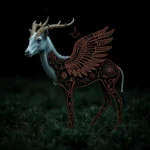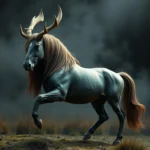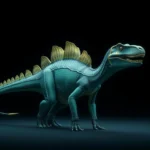The Enigmatic Gomphotherium: Symbolism and Significance
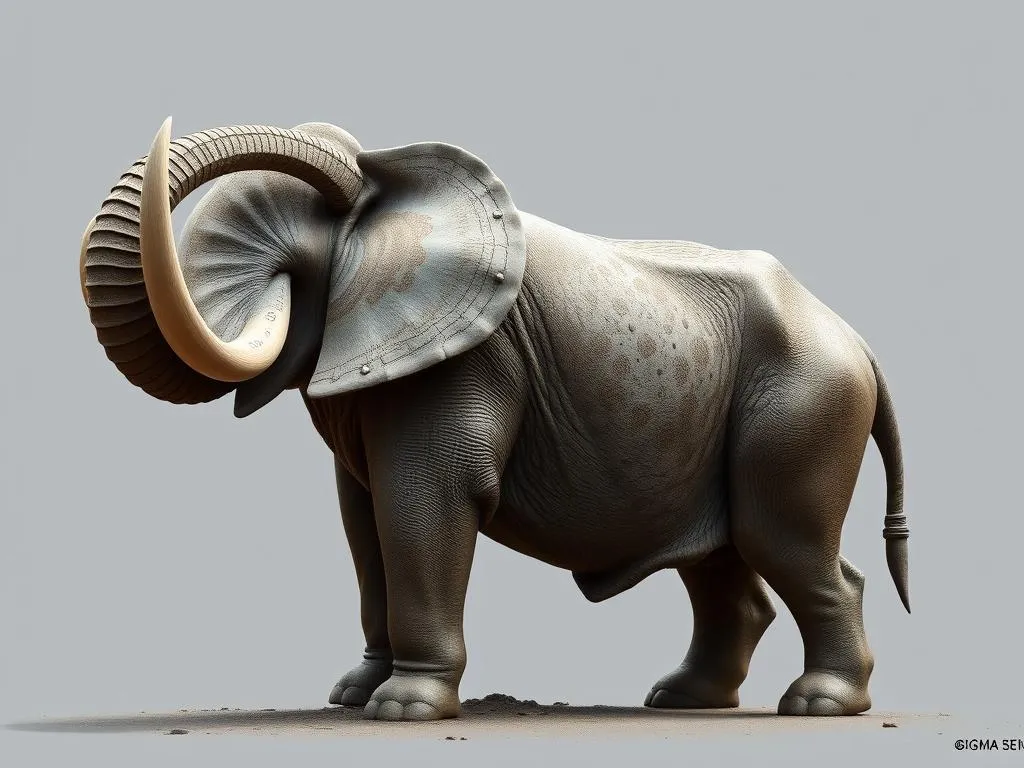
Disclaimer: Some images on this website are AI-generated artworks and may not accurately represent real animals.
Understanding the Gomphotherium
Overview of the Species
The Gomphotherium is an intriguing prehistoric mammal that roamed the Earth millions of years ago. Often compared to modern elephants, this ancient creature belonged to the order Proboscidea, which includes elephants and their extinct relatives. The Gomphotherium existed from the late Miocene to the late Pleistocene epoch, making it a notable figure in the evolutionary history of large mammals.
Physical Characteristics
Gomphotherium stood out not just for its size but also for its distinctive physical features. Below is a table that summarizes its key characteristics:
| Feature | Description |
|---|---|
| Size | Approximately 2.5 to 4 meters in height |
| Weight | 300 to 600 kg |
| Tusks | Long, flattened tusks, often used for foraging |
| Ears | Smaller than modern elephants |
| Body Structure | Stocky build with a robust skeleton |
| Fur | Likely covered in coarse hair |
These remarkable features contributed to its adaptability in various environments, allowing it to thrive in different habitats.
Habitat and Behavior
The Gomphotherium inhabited a range of ecosystems, from grasslands to forests, and was primarily found in North and South America. It played a crucial role in its environment, influencing the vegetation and the ecology of the regions it inhabited. Gomphotherium was likely a social creature, living in herds that provided protection against predators, showcasing a complex social structure akin to modern elephant herds.
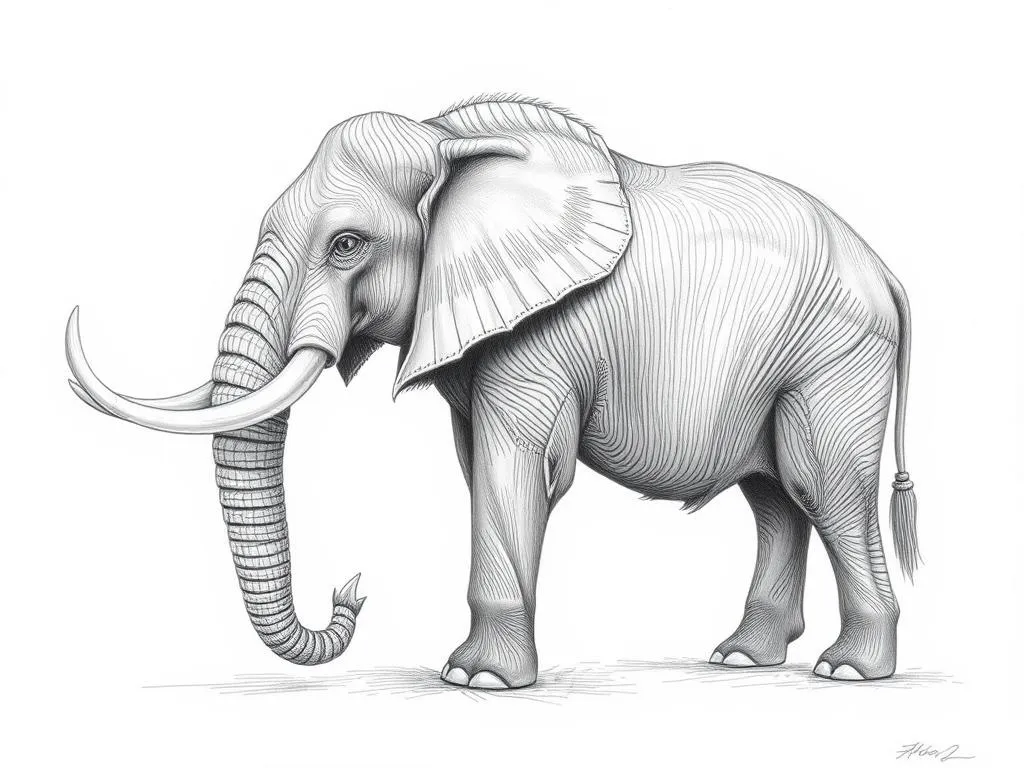
Symbolism & Spiritual Meaning
Representation of Strength and Resilience
In various cultures, the Gomphotherium symbolizes strength and resilience, embodying the robust nature of prehistoric life. Its massive size and formidable tusks represent physical power, while its ability to adapt to changing environments highlights resilience. This ancient creature serves as a reminder of the enduring spirit of life, reflecting the importance of strength in overcoming challenges.
Connection to Nature
The symbolism of Gomphotherium extends to its deep connection with nature. As a creature that thrived in ancient ecosystems, it epitomizes the intricate balance of life on Earth. The presence of Gomphotherium in our collective history invites reflection on the vital role that each species plays in maintaining ecological harmony. This connection underscores the importance of preserving our natural world for future generations.
Ancient Wisdom and Memory
The Gomphotherium can also be seen as a keeper of ancient wisdom and memory. It represents a link to our planet’s past, offering insights into the evolutionary journey of life. The extinction of such magnificent creatures emphasizes the fragility of existence and the lessons learned from history. In many spiritual traditions, animals are viewed as carriers of wisdom, and Gomphotherium is no exception, serving as a reminder of the knowledge embedded in our natural heritage.
Gomphotherium in Dreams
Interpreting Dreams Featuring Gomphotherium
Dreams featuring the Gomphotherium can be rich in meaning, often serving as a bridge to our subconscious mind. Encountering this ancient creature in a dream may signify a journey into one’s own strength or an exploration of deeply-rooted memories. The presence of Gomphotherium can evoke feelings of nostalgia and a search for connection with the past.
Symbolic Messages
Below is a table that outlines potential symbolic messages derived from dreaming of the Gomphotherium:
| Symbolic Element | Meaning |
|---|---|
| Strength | Encouragement to embrace personal power |
| Adaptability | Emphasis on the importance of flexibility |
| Ancient wisdom | Call to reflect on past experiences |
| Connection to nature | Reminder to honor our environment |
| Change | Guidance to accept transitions in life |
These symbolic messages can provide valuable insights, urging individuals to embrace change and tap into the wisdom of their ancestors.
Modern Interpretations
Cultural References
In contemporary culture, the Gomphotherium has found its place in art, literature, and media. Artists often depict this creature in various forms, from sculptures to illustrations, celebrating its unique features and significance. Literature may use Gomphotherium as a metaphor for strength and resilience, while documentaries highlight its role in the narrative of extinction and survival.
Conservation and Environmental Symbolism
The relevance of Gomphotherium extends to modern discussions on conservation and environmental issues. This ancient creature serves as a poignant symbol of the consequences of habitat loss and climate change. By studying the extinction of Gomphotherium, we gain insight into the importance of preserving biodiversity and protecting endangered species today. The legacy of Gomphotherium encourages a collective responsibility to safeguard our planet for future generations.
Key Takeaways
- The Gomphotherium represents strength, resilience, and adaptability, reflecting the enduring spirit of life.
- Its connection to nature serves as a reminder of the intricate balance required for ecological harmony.
- As a keeper of ancient wisdom, Gomphotherium invites reflection on our past and the lessons it imparts.
- Dreams featuring this creature offer valuable insights, encouraging personal growth and introspection.
- Modern interpretations highlight the significance of Gomphotherium in discussions about conservation and environmental preservation.
Conclusion
The Gomphotherium holds a significant place in both prehistoric history and modern symbolism. As we explore its characteristics, behavior, and meanings, we uncover the layers of wisdom it offers. From representing strength and resilience to serving as a reminder of our connection to nature, Gomphotherium invites us to reflect on our relationship with the world around us. By understanding the lessons from ancient creatures like the Gomphotherium, we can better navigate the challenges of our contemporary existence and foster a deeper appreciation for the natural world.
